Intro
Discover key facts about Metoprolol 100mg, a beta-blocker medication, including its uses, side effects, and interactions, to better manage conditions like hypertension and angina, and understand its benefits and risks.
Metoprolol 100mg is a widely prescribed medication for various cardiovascular conditions, including high blood pressure, angina, and heart failure. Understanding the key aspects of this drug is essential for both healthcare professionals and patients. Here are five critical facts about Metoprolol 100mg that highlight its uses, benefits, and potential side effects.
Metoprolol 100mg is a beta-blocker, which means it works by blocking the effects of the hormone epinephrine, also known as adrenaline, and by slowing the heart rate and reducing its workload. This mechanism of action helps in lowering blood pressure and reducing the risk of heart-related complications. The medication is available in various forms, including immediate-release and extended-release tablets, which allow for flexible dosing regimens tailored to individual patient needs.
The efficacy of Metoprolol 100mg in managing cardiovascular diseases has been well-documented in clinical trials. For instance, studies have shown that beta-blockers like Metoprolol can significantly reduce the risk of death and further heart attacks in patients who have suffered from a myocardial infarction. Moreover, Metoprolol has been found to improve survival and reduce hospitalizations in patients with heart failure, underscoring its importance in the management of chronic cardiovascular conditions.
Introduction to Metoprolol 100mg
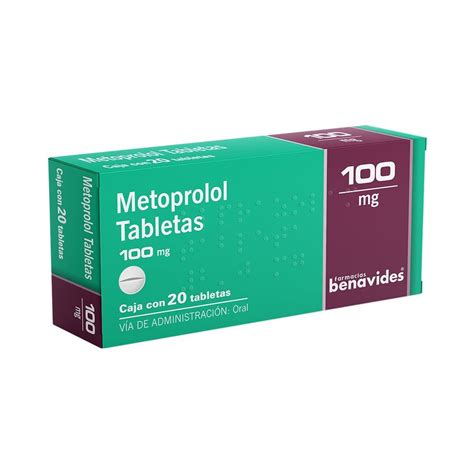
Benefits of Metoprolol 100mg
The benefits of Metoprolol 100mg are multifaceted, ranging from its ability to control blood pressure and alleviate angina symptoms to its role in improving outcomes in heart failure patients. By reducing the heart's workload, Metoprolol 100mg helps in minimizing the damage to the heart muscle, which can occur due to high blood pressure or heart failure. This protective effect contributes to better long-term health outcomes for patients with cardiovascular diseases.How Metoprolol 100mg Works

Pharmacokinetics of Metoprolol 100mg
Understanding the pharmacokinetics of Metoprolol 100mg is crucial for optimizing its therapeutic effects and minimizing potential side effects. The drug is well-absorbed after oral administration, with peak plasma concentrations achieved within 1-2 hours. Metoprolol undergoes extensive first-pass metabolism, primarily through the CYP2D6 enzyme, which can lead to significant variability in plasma concentrations among individuals. This variability underscores the importance of monitoring patients for efficacy and tolerability, as well as considering genetic factors that may influence drug metabolism.Side Effects of Metoprolol 100mg
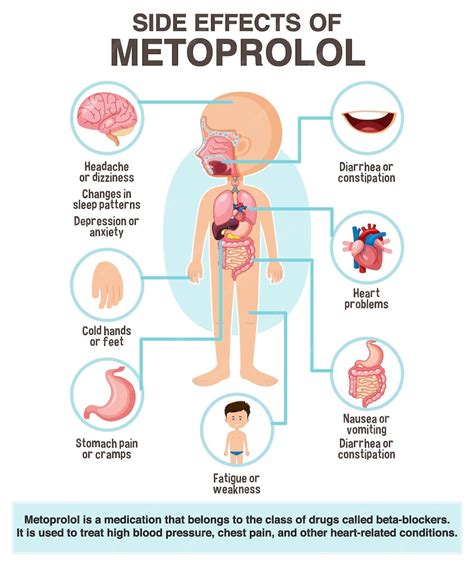
Managing Side Effects
To manage side effects associated with Metoprolol 100mg, healthcare providers may adjust the dosage, recommend lifestyle modifications, or prescribe additional medications to mitigate adverse effects. For instance, patients experiencing dizziness or lightheadedness may benefit from gradual dose escalation or splitting the daily dose to minimize peak effects. Furthermore, encouraging a healthy lifestyle, including regular exercise, a balanced diet, and stress reduction, can help optimize the therapeutic benefits of Metoprolol while minimizing its side effects.Interactions with Other Medications
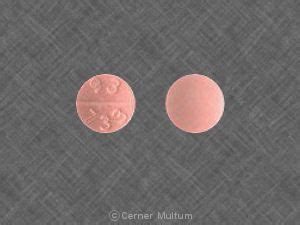
Avoiding Drug Interactions
Avoiding drug interactions with Metoprolol 100mg requires careful consideration of the patient's medication regimen and medical history. Healthcare providers should review all prescription and over-the-counter medications, as well as supplements and herbal products, to identify potential interactions. In some cases, alternative treatments may be recommended to minimize risks. Patients should also be educated on the importance of adherence to their prescribed medication regimen and the need to consult their healthcare provider before starting or stopping any medication.Special Considerations
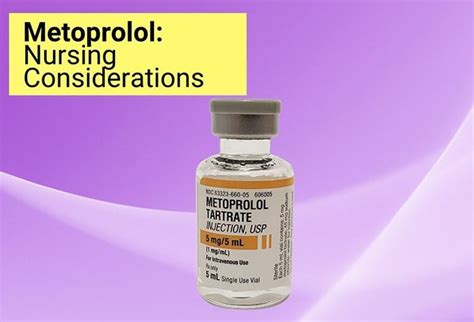
Patient Education
Patient education plays a crucial role in the safe and effective use of Metoprolol 100mg. Patients should be informed about the medication's benefits, potential side effects, and the importance of adherence to the prescribed dosing regimen. They should also be aware of signs that may indicate a need to adjust their medication, such as changes in blood pressure, heart rate, or symptoms of heart failure. Furthermore, patients should understand the risks of abruptly stopping Metoprolol, which can lead to rebound effects or worsening of their condition.Conclusion and Future Directions
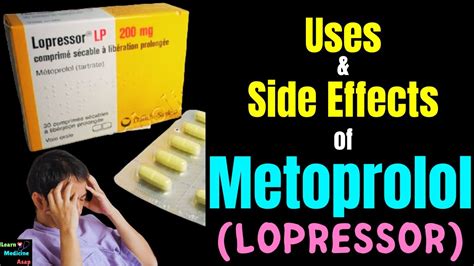
Final Thoughts
As we look to the future of cardiovascular medicine, it is clear that Metoprolol 100mg will remain an essential component of treatment regimens for many patients. By understanding its mechanisms, benefits, and potential limitations, healthcare providers can optimize its use, minimize risks, and improve outcomes for individuals living with cardiovascular diseases. For patients, being informed and engaged in their care is paramount, ensuring that they can work closely with their healthcare team to achieve the best possible results with Metoprolol 100mg.What is Metoprolol 100mg used for?
+Metoprolol 100mg is used to treat high blood pressure, angina, and heart failure. It works by reducing the heart rate and the heart's workload, which helps to lower blood pressure and improve survival in patients with heart failure.
How long does it take for Metoprolol 100mg to start working?
+Metoprolol 100mg starts working within a few hours of taking the first dose, but it may take several weeks to achieve its full effect on blood pressure and heart rate.
Can I stop taking Metoprolol 100mg abruptly?
+No, it is not recommended to stop taking Metoprolol 100mg abruptly. Stopping the medication suddenly can lead to rebound effects, such as a rapid increase in blood pressure or worsening of heart failure symptoms. If you need to stop taking Metoprolol, your healthcare provider will gradually taper your dose to minimize risks.
We hope this comprehensive overview of Metoprolol 100mg has provided valuable insights into its uses, benefits, and potential side effects. Whether you are a healthcare professional or a patient, understanding the complexities of this medication can help in making informed decisions and optimizing its therapeutic effects. If you have any further questions or would like to share your experiences with Metoprolol 100mg, please do not hesitate to comment below. Your feedback and engagement are invaluable in our ongoing effort to provide high-quality, informative content.
